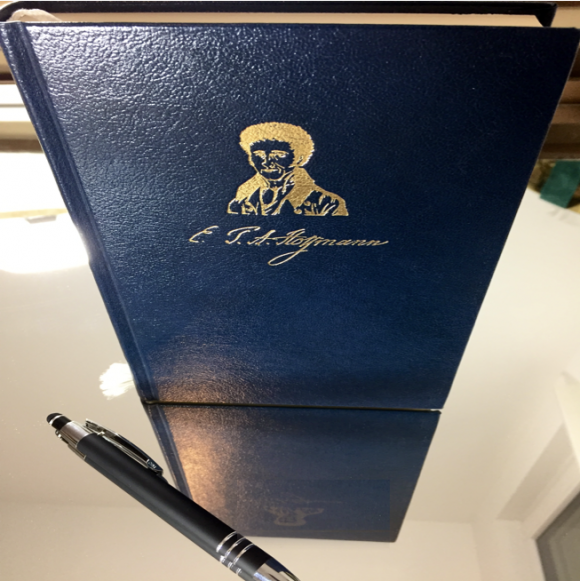Suppose you’re writing a novel. Your plot requires that one of the characters, let’s call him Damocles, dies (of natural causes). You can do this in several distinct ways.

One would be simply by making a sober factual statement: “On Saturday evening, Damocles died in his hospital bed.” In this case, we just have a basic statement of what happens, along with the time and place of the event; and it’s done in the voice of the narrator.
Another way, still in the voice of the narrator, would be a metaphorical expression: “It was on Saturday evening when, still in his hospital bed, the clock ran out for Damocles.” What makes it metaphorical is the way the basic fact of Damocles’ death is expressed: rather than saying directly that he died, a figurative way is used. The death is referred to in terms of an analogy, roughly, that the time of a person’s life is like the time a clock can run on the amount of energy that has been expended winding it up, and that that life-time is spent, and thus the life terminates, just as the clock stops when that energy is exhausted. Saying that the “clock runs out” is meant to indicate that Damocles’ life time is at its end.
There is a third, even more interesting way. You could use the same metaphor, but build it into the events of the story-world, like so: “At the same time Saturday evening, as Damocles lay in his hospital bed, the time on the grandfather clock back in his sitting-room ran out. Several people who heard of the sad news couldn’t help noticing the strange coincidence…”
There’s a couple of things to notice here. First, this is still in the narrator’s voice, but the narrator now tells us about two events, even though what is narrated is still just one fact. In the earlier examples, whether expressed factually or metaphorically, there was just one thing going on; in the third example it is more natural to say that two things were, though they were of course connected by the analogy. What makes it two events that express the same fact is that, in the third example, there are two different locations involved: the hospital bed in which Damocles dies, and the sitting-room back at his house where his clock stops. They both, in the text of your novel, express the same fact; and they’re both firmly in the power of the narrator. But their distribution over the geography of the story-world is different.
The second thing to notice is that the third example needs to do some more work in order to make the metaphor clear to the reader. If text text had just said “the clock ran out”, without following it up with the phrasing about “sad news”, the reader might not have made the connection. That is to say, the reader might not have inferred that the “clock running out” was metaphorically meant, and meant by the narrator to indicate Damocles’ death. That’s something a reader might have suspected (given some of the poetic conventions in our culture), but not known with any certainty. Of course, the bit about “sad news” is still somewhat indirect, but it is already much stronger. Further context from what follows in the novel will then reinforce it, as the story continues in a world in which Damocles now is dead, his will executed, and so on.
Let’s file these two points away, then: metaphorical expressions can be built into the external events of the story-world, which means they get distributed over distinct locations; and the metaphorical expression, particularly in this externalized mode, might require additional context information to be interpreted by the reader.
Building metaphorical information into the external events of a story-world is nothing unusual: it’s been done in literature since ancient times. It is, however, more typical for expressing internal, that is, psychological information about the characters rather than factual events. For example, a character’s sad mood might be indicated, rather than narrating it directly, in terms of the landscape being described as dark, cloudy, rainy. Knowing that, as the author of the novel that features Damocles’ death, you may come up with a fourth way to present it. You’re making use of the extra context you already introduced when you brought up the “sad news”. And you filter it though another character. Let’s call her Cassandra. “On Saturday evening, collecting a few things from Damocles’ house, she stopped cold as her eyes fell on his grandfather clock. It wasn’t running any more. Cassandra felt a deep sadness. She knew at once what it meant…”
The fourth way is different from the third mainly in that it aligns with narrative conventions from a voluminous cultural background (roughly, 19th century European literature). This can make the metaphor more compelling, especially if the expectations of the target audience are shaped by this background. It also introduces a psychological connection, in addition to the factual and metaphorical ones. Consider this variation, where it’s not Cassandra, but someone called Diogenes, through whom the connection gets filtered: “On Saturday evening, collecting a few things from Damocles’ house, he grimaced immediately as his eyes fell on that dated grandfather clock, which had just stopped. How fitting, Diogenes thought, so the old babbler’s finally stopped for good…” Depending on what the reader’s view of Damocles is, and how inclined they are to agree with either Cassandra’s sadness or Diogenes’ cynicism, the connection will make either a stronger or weaker impression. In fact, filtering through psychology could even be used to counteract the metaphorical meaning, should that be what you intend: “Electra went to Damocles’ house on Saturday evening to collecting a few things. The grandfather clock in his living-room wasn’t running any more, and Electra gave a short laugh. This would be a coincidence. Of course, she though, it would be just that — a coincidence. Nothing to get hung up on…” One peculiar thing to note, however, is that each of these variations (including the last, counter-effective one) is reinforced if the character through whose experience the metaphor is filtered is surprised by the circumstance it expresses, that is, by Damocles’ death — or at least, if not taken by surprise, had tried to avoid thinking about it. That’s not something the narrator can do; but the narrator can portray an additional character doing it: trying to push the imminence of the death from their mind, and then getting struck by its realization, making the metaphorical connection all the more emotionally salient.
Psychological connections are different from metaphorical connections, then, by playing on the empathy of the reader. Given some cultural background knowledge about clocks, and the analogy between a clock’s running-time and a person’s life-time, everyone would understand the metaphor. But not everyone would “understand”, in the sense of “empathize with”, Cassandra’s emotional reaction. Some would be more compelled to agree with Diogenes or even wave it all off with Electra. Filtering through psychological connections opens a range of choices for you as the author, but at the same time they multiply variations of interpretation. Conversely, the purely metaphorical form in the third example collapses the psychological dimension, and relies on only a single connection. It only works, however, because it is presented with the authority of the narrator. (And of course, it only works in novels: where there is a narrator, invested with this kind of authority, in the first place.)
1. Stories like that of the death of Damocles circulate in the real world, too. I don’t mean that in the trivial sense of the first and second example, of course, although that is certainly the case. What is remarkable, and leads to some telling and retelling of such stories, are cases that resemble the third or fourth example. In such cases, a person’s death coincides with some other event, like the stopping of the clock, in such a way that the latter event somehow appears to express, metaphorically, the fact of the first event: the stopping of the clock, although a real-world happening, appears to also express the idea that the person’s “time has run out”, making it look as if the event itself was metaphorically meaningful.
But the analogy appears to be imperfect; and it appears so in three different respects: first, in the real-world cases there is no author who decides which events happen, and how they are presented; secondly, in the real-world cases there is no reader to whom the story is addressed (and whose knowledge of the conventions is presumed); and third, in the real-world cases the metaphorical meaning does not exist without, but entirely within the psychological dimension.
2. The first imperfection seems the most glaring one. If you are the author of the novel that contains Damocles, then you decide that there is the event of his death, and also whether there is a metaphorical way of telling about it (rather than, or in addition to, just a factual one); and if the latter, then again you decide whether to write into the novel the further event of the grandfather clock stopping, or any other characters realizing the metaphorical meaning and having emotions about it. But in real life, I take it, there is no such thing as an “already written” detailed destiny where all that happens is pre-determined, as if planned and decided by the author of a “book of life”. The things that happen to people (and what people think, feel, and do) in real life do not follow any coherent, thought-out plot; much less are things that happen to grandfather clocks in living-rooms purposefully designed to express metaphorically what goes on with their owner’s lives elsewhere.
Or so it seems. For the analogy is not quite as hopeless as it may look at first glance. It is true that, in a novel, every single event is imbued with a narrative purpose; and that is done, again for all these plot events, by one and the same person, the author. (I’m ignoring complexities that may result from collaborative work; I think these can be accounted for, generally, by assuming that collaborating authors have some, at least implicit, agreements which preserve the coherence of the narrative.) But for the purposes of the analogy, we do not have to look for a structural equivalent of the whole of the characters’ lives. We are comparing, after all, only a single episode with something corresponding in the real world, which is, there in the real world as well, only a very limited selection of events. We’re comparing, to be specific, the episode of Damocles’ death in the novel with a similar-length and roughly equally complex episode in the real life of some person. And that changes things — although admittedly only to some degree.
It changes things because now we’re no longer looking at the implausible notion of an author for “all of reality”, but only at the more limited notion of an author of a specific real-world story about a person’s death (with simultaneous clock-stopping). What’s more, in this more limited context we do no longer have to assume that the author decides which events happen: we only have to assume that someone has decided which events to select for telling the episode. The “author”, as far as the real-world story of someone dying (along with their clock stopping) goes, is not someone who controls all the events in the real world, but someone who chooses some events and weaves them into a narrative. In fact, there is always someone, in all the known real-world cases, who does that: often, a relative or neighbor of the dead person picks these events and relates them, to others in the community (so the tale gets preserved and re-told for generations), to a local newspaper (which might report it as a curiosity), to a club or society which collects and studies such “phenomena” (nowadays getting slowly extinct, though quite numerous still about a hundred years ago), or even to a psychotherapist (hoping to get help in coping with the weird and likely disconcerting experience).
As I said, this preserves the analogy only to a degree: there is authorship here, but not in the sense in which the author of a novel can simply invent and write into the plot an event such as the stopping of the clock; it’s authorship only in the sense that among events which actually occurred (let’s assume that they have) some are chosen and combined into a narrative. Notice, however, that a author in the latter sense choses (though not invents) the event of the stopping clock still for the same reason: because it metaphorically expresses what at the same time, in a different event, also factually happens. Our re-interpretation of what counts as an author, in the case of a real-world story, preserves this motivation of duplicating events to have both a factual and metaphorical rendering of the death at the center of the episode.
3. The second imperfection of the analogy, between the fictional death of Damocles in your novel and a similar real-world story that also involves a death and a clock-stopping moment, concerns the reader. In the fictional case, there is a model reader you address as the author; and by choosing to integrate an event like that of the stopping of the clock you require of that reader an understanding of the underlying metaphorical connection: that the time a clock runs until it has used up its stored energy can be taken, symbolically, as the time a person has to live, and that the stopping of the clock would correspond, in this metaphorical sense, to the person’s death. (This is not a very demanding requirement, at least today; we would expect a typical novel reader to effortlessly comprehend this metaphorical notion.)
As with the first imperfection, this looks more grave at first than it really is; but as with the first imperfection, too, it can only be addressed up to a point. For in the real-world cases, too, there is an audience. Whether the story gets told around in the village by a neighbor, or reported to a local newspaper (or a society that collects such anecdotes), there is always someone who hears about the death and the clock stopping; and that someone, for the story to have the intended impact, would have to comprehend the significance of the latter, the possibility, that is, to interpret it as metaphorically expressing the very same fact of that death. Just as you did for the novel reader, the author (in the sense we’ve just worked out when discussing the first imperfection) would relate both the fact of the death and the event of the clock stopping in a manner that brings out the connection, and makes it stand out that the latter can be interpreted as a metaphorical representation of the former. And this targeting can still be fairly broad, too. For just as the only thing you have to assume about the model reader here is a general understanding of the metaphorical meaning, so does the teller of the story.
But as before, this does not entirely dissolve the imperfection of the analogy. For there is something else that the reader of a novel typically can assume: there are narrative conventions that require an author to include all and only those events that are relevant to the plot. There is, in other words, usually an integrated whole into which an episode such as that of the death of Damocles fits, and which should cover the additional events, such as the stopping of the clock, as well. The reader can assume that the latter is included because it means something (and then from there proceed to figure out what exactly the metaphorical meaning might be). There are of course some authors who might deliberately play with and frustrate such expectations, and there may be some authors who misjudge the necessity of additional metaphor and get too baroque by including too much. But on the whole, a reader would normally rely that the world of the novel is governed by a requirement of narrative integrity which covers all plot events. A story-world is homogeneously meaning-filled, and every reader knows it.
Every reader also knows that this is true of story worlds, but not about the real world. When we hear about an episode in the latter, we don’t assume that all events have significance in a larger plot; in fact, we know there is no larger plot. We can of course, and often do, retrospectively read plots along some familiar lines into the events of the real world, and sometimes even try to live our lives prospectively so as to fit one. But generally no one is under the illusion that every episode we live through consists of well-designed events each chosen and shaped for their narrative significance. We do not believe, as we’ve put it once already, that we are characters in an already-written “book of life”.
And that’s why the analogy between the novel case and the real-world cases remains imperfect with respect to the reader, too. It’s true, however, that this imperfection can easily get overlooked, especially if the real-world anecdote is well-told. The audience might forget, or overlook for a moment, that events in the real world do not automatically get significance from a larger, integrated plot. In fact, with episodes like the death of Damocles, this forgetfulness or overlooking is in a way encouraged by the metaphorical connection, which enhances the impression of meaningfulness. But the imperfection in the analogy remains, even if a particular audience sometimes loses sight of it.
With respect to the first imperfection, then, what remained as difference between the novel case and the real-world cases was that the author of the former had a more far-reaching authority: you as the author could simply invent the event of the clock-stopping, whereas the “author” in the more restricted sense of the real-world analogue could only choose from actual happenings. Now with the second imperfection, what remains as different is that the reader in the novel case, but not the audience in the real-world cases, can make the assumption that a narrative integrity governs the world: that every event in the plot is designed and has a meaning within an integrated whole, the plot. There is a certain symmetry here between these first two imperfections; that is of course not surprising, given that they reflect the two complementary sides of the author-reader relationship. The third, and final imperfection, is somewhat more complex.
4. In the real world, there is no analogue to the third example, only variants of the fourth. The third example does three things: it introduces an external event (the stopping of the clock) at a different location than the main fact (the death of Damocles); it puts forward a suitable interpretation under which the additional event metaphorically expresses the main fact; and it keeps both the event and the metaphorical interpretation free from any character’s subjective perspective, and assigns them strictly to the narrator. In fact, it keeps it in a mode that resembles the third-person, objective point of view as closely as possible, a perspective that has sometimes been called (following Thomas Nagel) the “view from nowhere”. This is an option available to you, as the author, when writing this into a novel; but it’s not what happens in the real-world analogue of these episodes.
To begin with, in the fourth example Cassandra (or Diogenes, or Electra) sees the clock stopping, as opposed to the narrator simply telling us that it stops, so to speak, entirely unobserved; the third example works without any character in the world of the novel even observing that additional fact. Next, someone has to interpret it as metaphorically expressing the death of Damocles, too: in the third example, the narrator does that, whereas in the fourth example, this falls again to one of the in-world characters. Both the observing and the interpreting, just as in the fourth example, must be done in the real world by someone, a real person, since in the real-world there is no narrator noticing and interpreting events, free-floating, so to speak, from nowhere’s point of view. (Or if there is, we wouldn’t know about it.)
Moreover, it’s not enough that this person, in the real world case, simply observes and interprets: they also must relate the event and its metaphorical interpretation. There is no such necessity at all in the novel: Cassandra, Diogenes, or Electra might never, throughout the entire narrative, tell anyone else about their observation of the clock’s stopping and the connection they made to the death of Damocles. But in the real world, would a person only observe and interpret, and never tell anyone about it, the information about the event (and the very possibility of metaphorical interpretation) would soon vanish, perhaps first from that person’s own memory, and at the latest with their own death. Crucially, no-one else would ever hear about it. And as I have noted, there are anecdotal stories about episodes just like that circulating, so at least in some cases, someone must have talked about it. And that is something that is not necessary in the novel: you might write it into it, but if you didn’t, the reader would still know.
But if that is true, then in the real-world case we now have not only necessarily a character observing, interpreting, and relating — we also have of necessity now an author, someone to select these two events, and make the metaphorical connection. As we have seen above, when we discussed the first imperfection of the analogy, that’s not an author in the same sense as in the novel analogue: whereas the novel’s author can freely make up events, the author (re-teller) of the episode in the real-world case can at best select from events that independently happened. Nonetheless, at least as far as this selection goes, authorship, in the real-world case, is not optional, but a necessary feature.
And finally, since a character’s perspective comes in necessarily through observation, (metaphorical) interpretation, and relating, there must also at least in a general sense be an audience, that is, the equivalent of what in the novel analogue is a reader: someone who at the very least can comprehend the metaphorical meaning and very likely (though not strictly necessarily so) empathize with the character to some degree when realizing the metaphorical connection. And in this sense, what we learn about the episode is filtered through that character’s psychology. It is relevant, in other words, for how the episode is understood whether we hear about it filtered through a Cassandra-type experience, a Diogenes-type experience, or Electra-type experience. The audience, just as in the novel case the reader, relates at least partially to it via empathizing with one of these experience-types.
And thus we have this third imperfection in the analogy between the novel case and the real-world case: in the latter we always stay within the psychological dimension, particularly when we realize the metaphorical meaning. In the former, the novel case, you have the option to arrange the situation in a way that it stays out of the psychological (at least, as far as the psychology of characters is concerned). In the real world, there is no decoupling from the involved persons’ psychologies.



